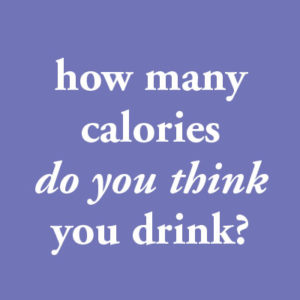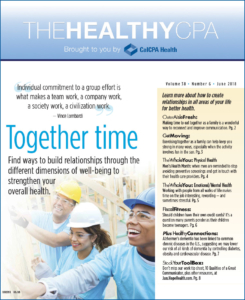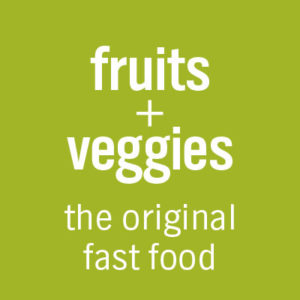News
 Your vision can be damaged or lost without treatment.
Your vision can be damaged or lost without treatment.
There are about 29 million people who have diabetes in the U.S. today. If your doctor has told you that you have diabetes, you’re one of the 21 million who know. That leaves about 8 million people who have no idea they have it.1
Diabetes affects your body’s ability to use blood sugar or glucose. The most common form of diabetes is type 2, where the body does not properly use insulin, a hormone that helps the body use blood sugar for energy. This is called insulin resistance. At first, your pancreas makes extra insulin to make up for it. But, over time it isn’t able to keep up and can’t make enough insulin to keep your blood sugar at normal levels.1
Having diabetes puts you at risk for serious eye problems — all of which lead to poor vision and, for some, even blindness. Here are some eye conditions made worse by diabetes:
Retinopathy
The retina is the layer at the back of the eye containing cells that are sensitive to light. Retinopathy occurs when the blood vessels in the retina swell and leak fluid. New blood vessels can also grow on the retina, leaking fluid and stopping light form reaching it. This causes blurry vision and, in more serious cases, blindness.2
Cataracts
A cataract is a clouding of the eye’s natural lens, which lies behind the iris and pupil. The lens inside the eye works much like a camera lens, focusing light onto the retina for clear vision. It also adjusts the eye’s focus, letting us see things clearly up close and far away. The lens is mostly made of water and protein. The protein helps keep the lens clear and allows light to pass through it. As we age, some of the protein may clump together and start to cloud a small area of the lens. This is a cataract.3
Glaucoma
This is pressure in the eye, which causes harm to the optic nerve. Glaucoma impacts light perception. Without treatment, people with glaucoma will slowly lose their peripheral (side) vision, making them unable to see objects to the side and out of the corner of their eye. They feel like they’re looking at things through a tunnel. Over time, straight-ahead (central) vision may get worse until its lost completely.4
Light sensitivity
People with diabetes are more sensitive to the sun than people who don’t have it. This is because the drugs taken by people who have diabetes, such as those for high blood pressure, increase light sensitivity. Protecting your eyes from the sun’s UV rays is not only for people with diabetes. All people should take safety precautions to protect their vision. To protect your eyes you should:
- Wear sunglasses that block 100% of UV rays, even on cloudy days.
- Get Transitions®
- lenses for your prescription glasses. They are as clear as regular lenses indoors, but turn as dark as sunglasses outdoors, depending on the strength of UV rays — reducing glare and making the eyes more comfortable. They also block 100% of UVA and UVB rays.
- Choose bigger lenses to protect more of your eyes, and wear a wide-brimmed hat to block UV rays from the top and sides of your face.
- Get contact lenses that filter out UV, but remember that they do not protect the area around the eyes. For complete eye protection, wear sunglasses that shield most of the eye as well.
People with diabetes need yearly eye exams4
If you have been diagnosed with diabetes, taking the right medicine, watching your blood sugar levels, eating healthy and exercising can help you control it. It’s also important to get yearly eye exams, which includes dilation. With dilation, an eye care professional places drops in each eye to widen the pupil, which is the opening at the center of the colored part of the eye called the iris. Dilation is an important part of a comprehensive eye exam because it lets your eye care professional to see the inside of the eye.

You may be counting calories for every bite you eat, but are you keeping track of what you drink? Water is the perfect calorie-free beverage. Fill a clean, reusable water bottle and toss it in your bag or brief case to quench your thirst throughout the day. If you’re gulping down regular sodas and other sweet drinks, you may be adding a lot of unnecessary calories to your diet.
Next time you go for a sugary drink, look at the calorie information on the label. Also, check out the serving size. A single serving might only be 100 calories, but if the bottle holds 2.5 servings, you’re up to 250 calories. So make sure it’s worth it!
 The eMagazine dedicated to improving members’ well-being
The eMagazine dedicated to improving members’ well-being
- The family that eats together stays together
- Summer fitness family plan
- Stop knee trouble before it starts
- Alzheimer’s: Lowering the risk
- Smoking – quitters win
In each issue you will find information and inspiration to help you with your health and wellness goals.
 Diabetes is a condition where the body can’t make insulin, or can’t use it well. Insulin is a hormone that helps our bodies get energy from the glucose in the food we eat. Without it, glucose levels in the blood stream are too high. Over time, this can cause damage to your body tissue and organs.1
Diabetes is a condition where the body can’t make insulin, or can’t use it well. Insulin is a hormone that helps our bodies get energy from the glucose in the food we eat. Without it, glucose levels in the blood stream are too high. Over time, this can cause damage to your body tissue and organs.1
There are three main types of diabetes.1
- Type 1 diabetes can affect anyone, but most often it develops in children or young adults. People with this type of diabetes produce very little insulin, or none at all.
- Type 2 diabetes is the most common type. People with type 2 diabetes either make too little insulin, or their bodies aren’t able to use it effectively.
- Gestational diabetes (GDM) is a form of diabetes that appears during pregnancy. While GDM usually goes away after pregnancy, it puts women and their babies at higher risk for type 2 diabetes.
Cancer comes in all shapes and sizes. And, people of all ages can get it. But there are things you can do to protect your health. The best ways to stop cancer in its tracks are to get your cancer screenings on time and take steps each day to stay healthy.
Get checked early and often
Did you know that your chances of surviving the most common types of cancer are 80-100% if you catch them early enough? Cancer progresses in stages. It starts in one organ or place in the body. This is called “local.”

Americans are heavier today than they were 20 years ago. We also spend a lot more time eating while staring at a screen – on a cell phone, computer, personal digital assistant (PDA) or TV. Plus, we’re choosing screen time over being active. And when your body takes in more calories than it burns, you end up with extra pounds.
So be aware of how you eat and use your time. Skip your online chat and meet up with a friend for a walk instead. Take a lunch break from your laptop and enjoy a healthy meal and good conversation with your coworker. At home, make TV time your physical activity time. You can work out without missing your favorite show.

Is stress affecting your mood and sleep? Then, it’s time to push back. While being active and having hobbies can help, you can also do simple things – like take frequent breaks throughout your day.
Learning how to relax is very important, too. One technique is imagining a peaceful place in your mind and, then, thinking of all the sights, sounds and smells of that place. Or you can practice deep breathing, with a focus on slow, deep and regular breaths, or tensing and relaxing the muscles in your body. If none of these strategies work for you, find a way to relax that does. Whatever you do, take time to de-stress.
 What is pre-diabetes?
What is pre-diabetes?
Pre-diabetes means your blood sugar level is higher than normal, but not yet high enough to be classified as type 2 diabetes. However, without intervention, pre-diabetes can become type 2 diabetes in 10 years or less.
If you have pre-diabetes, the long-term damage of diabetes – especially to your heart and circulatory system — may already be starting.
Here’s the good news: Progression from pre-diabetes to type 2 diabetes isn’t inevitable.
With healthy lifestyle changes — such as eating healthy foods, including physical activity in your daily routine and maintaining a healthy weight — you may be able to bring your blood sugar level back to normal.
STEP ONE: Know the Risks
People who fit the following descriptions are more likely to develop diabetes: Read more

Fruits and veggies are low in calories and full of vitamins, minerals and fiber. How important are they to your diet? The United States Department of Agriculture and ChooseMyPlate.gov recommend making them half your plate at mealtime.
If you’re having trouble getting them fresh, use frozen, canned or dried fruits and veggies. With the canned option, watch out for too much sodium or salt. Save fruit that’s too ripe for smoothies with fat-free milk or low-fat yogurt – or bake muffins or bread with it. If your family isn’t crazy about fruits and veggies, try adding them to casseroles, salads, soups and sauces, where they’ll be harder to taste.
 Looking for information to help? The Stronger Together website is a great starting place for people facing cancer. You can find all the site links, tools, apps and more to help you – from diagnosis to survivorship and everything in between.
Looking for information to help? The Stronger Together website is a great starting place for people facing cancer. You can find all the site links, tools, apps and more to help you – from diagnosis to survivorship and everything in between.
Find digital tools to:
- Make shared treatment decisions.
- Prepare for care.
- Self-manage symptoms and concerns.
- Work on a care plan.
- Learn where to go for case management help.
- Get support resources for caregivers.

